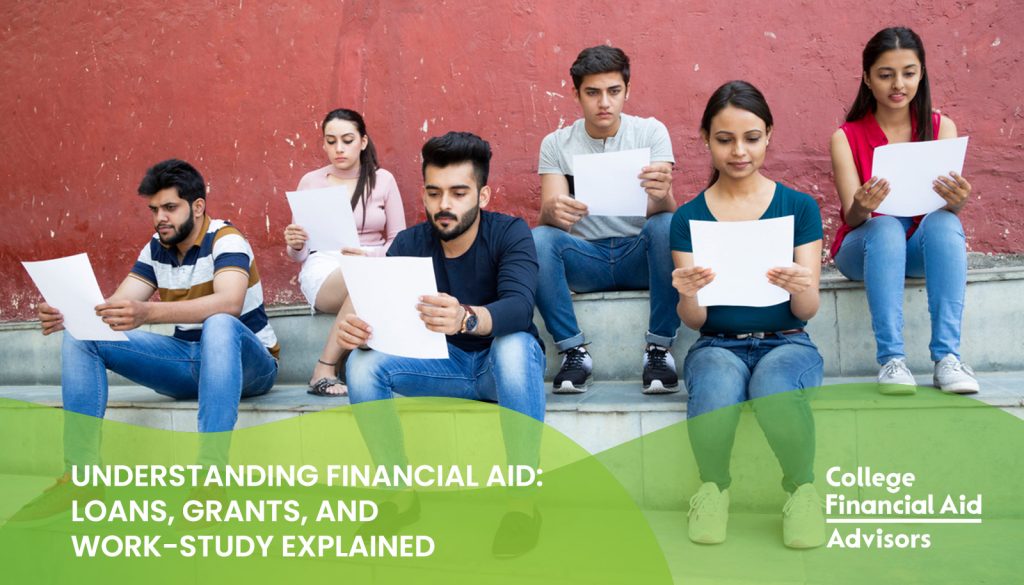As you prepare for college, understanding the world of finances can feel like learning a new language, especially when you start looking at your financial aid award letter. But don’t worry, you’re not alone! Whether you’re planning to attend college soon or just thinking about your future, understanding the different types of financial aid you might receive is key to making smart decisions about paying for your education. Here’s a few key terms that you need to know when it comes to loans, grants, and work-study!
Loans:
Loans can be a tricky part of your financial aid package. They’re money you’ll need to pay back after you graduate (or if you drop out of school) with interest. Federal loans usually have better terms, such as lower interest rates and more flexible repayment options. Private loans, on the other hand, can be riskier and often come with higher interest rates. Subsidized loans don’t accumulate interest while you’re in school, while unsubsidized loans do. That means that with unsubsidized loans, the amount you owe will increase as interest builds up. Read more about the difference between federal v. private loans here!
No matter the type of loan you choose, pay attention to the interest rate on your loans. Even a small difference in rate can make a big impact over time, so compare and understand your options.
Work-Study Programs:
Work-study programs allow you to earn money while attending school. The money you earn through work-study isn’t a loan, but a paycheck for working part-time jobs on or near campus. It’s a great way to gain work experience while earning extra cash for your expenses. You need to apply for federal student aid (FAFSA) to be considered for work-study. It’s not guaranteed, so make sure to fill out your FAFSA form early. There are limits on how much you can earn through work-study, and your school will set a maximum number of hours per week you can work. It’s important to balance work-study with your class schedule to avoid burnout.
Grants:
Grants are probably the most exciting part of your financial aid package because they don’t have to be paid back! These are typically based on financial need, and can come from the federal government, state government, or even your college. If you qualify for a Pell Grant, you could receive a substantial amount of aid. This is based on your FAFSA application and your family’s financial situation. Many states and universities also offer grants to students, usually with similar eligibility requirements based on need.
Don’t forget to read the fine print!
While loans, work-study, and grants are the main components of most financial aid packages, your award letter should include some other information. This includes the award amounts, renewability, deadlines, and other eligibility criteria. Ensure that you understand what you’re signing on for and if this will be funding that will help you through all of your college journey.
Understanding loans, work-study, and grants in your financial aid package is crucial to making informed decisions about paying for college. Take your time to read through all the details, ask questions if you don’t understand something, and make sure you’re clear on how each type of aid works. Paying for college is a big responsibility, and it’s important to know exactly what you’re agreeing to.
More about Jodi and College Financial Aid Advisors
Jodi is a FAFSA financial advisor who helps with the financial aid process to help families of college students maximize their financial aid. From completing the FAFSA and completing the CSS Profile to reviewing the SAR, responding to requests for verification, comparing financial aid offers and understanding student loan options, Jodi is a fantastic resource when it comes to student financial aid. Schedule a 15 Minute Power Chat to learn more about finding ways to pay for college.

